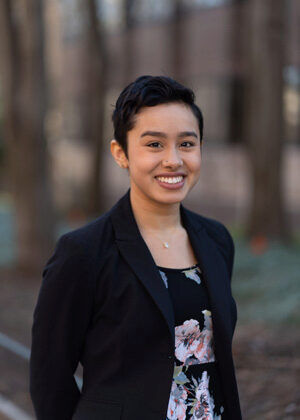
Participating in a summer research program is one of the most valuable things you could do to explore your academic interests. I am someone who came to college really unsure about my concentration and career path in general. I found myself really enjoying my management classes, so I decided to meld this interest with my existing passion for social impact and issues of diversity and pursue organizational behavior research.
I got in contact with Professor Sigal Barsade in the management department who specializes in organizational culture and emotions in the workplace. She was able to give me academic-research context for a lot of the anecdotal evidence I’ve heard from my family about the corporate world. Luckily, she also connected me with Dr. Lizzie Wolf, Professor of Organizational Behavior at INSEAD Business School in Fontainebleau, France. I had never even left the country, so I was excited at the prospect of experiencing a summer in France.
Unfortunately, the universe had other plans. At this point it was May, and the CDC deemed France a Level 4: Very High Risk country for travel. I made the decision to stay home in Chicago instead, which had its ups and downs. I was able to explore research while being close to my family and friends from home. However, I did experience some study-abroad FOMO. I tried to make up for this by immersing myself as much as I could in French culture (mostly in culinary form).
The summer really opened my eyes to opportunities outside of those that Wharton students typically follow. For example, I got to speak to a full-time research assistant at INSEAD who worked at a nonprofit thinktank before pursuing her PhD. I had always assumed that nonprofit work looked a certain way, but speaking with her showed me that this doesn’t have to be the case. There are organizations working hard to understand how to make the nonprofit sector more efficient and impactful.
I also had a chance to make meaningful contributions to my research professor’s work. Going into the program, I had this notion that I wouldn’t have any autonomy in the work that I would be doing. However, Lizzie made it clear that she wanted me to not only get tangible skills like working with Qualtrics or Prolific and writing literature reviews, but also a taste of how to think like a researcher. She encouraged me to think of potential new research questions based on both academic literature and my own life experiences.
If I had the chance to do it over, knowing what I know now about the travel, I absolutely would still do the World Research Assistantship Program (WRAP). The program ultimately helped me explore how I want to combine management and social impact. I am now excited to continue to expand my knowledge base into the realm of strategic management and how that can be more of an inclusive field, both in the types of people invited to the table and the impact companies make on surrounding communities.


